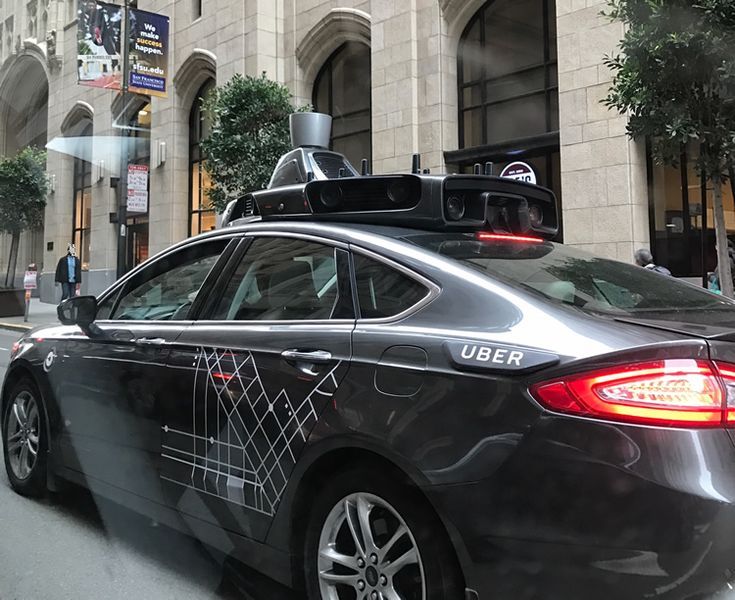Note: GJEL Accident Attorneys regularly sponsors coverage on Streetsblog San Francisco and Streetsblog California. Unless noted in the story, GJEL Accident Attorneys is not consulted for the content or editorial direction of the sponsored content.
Testing of driverless cars in California without a backup driver behind the wheel could begin as early as Monday, according to rules passed down from the Department of Motor Vehicles last month.
The San Francisco Bicycle Coalition is asking its members to contact DMV head Jean Shiomoto to urge her to reconsider granting permits for truly driverless car testing in California, in light of the recent robot-car fatality in Tempe, Arizona.
From an open letter by Brian Wiedenmeier, SFBC Executive Director, to Shiomoto:
I write to call upon you and your department to halt plans to issue any permits for autonomous vehicle (AV) testing in California until a full investigation can be conducted by the National Transportation Safety Board into the fatal collision involving an Uber AV that took the life of Elaine Herzberg in Tempe, Arizona on March 18, 2018. A full investigation would allow regulators to determine what role Uber’s AV technology played in failing to properly detect and avoid Herzberg as she attempted to cross a six-lane street that evening.
It's unusual for the SFBC to insert itself into state issues, but in this case it's the only way to have a say on what goes on in San Francisco since AV testing is regulated at the state level. "I want to stress that San Francisco is likely to see more permits issued for testing than any other county," wrote Wiedenmeier in his letter. "Given the density of likely AV testing in our city, people who walk and bike in San Francisco would be put in the greatest danger if unsafe technology is rushed to fully autonomous testing without understanding any potentially fatal flaws."
Last February the department announced a permit process to allow AV cars to test without a backup driver at the wheel, a scenario that alarmed safe-streets advocates.
Cathy DeLuca, Policy & Program Director for Walk San Francisco, came out strongly against testing without a backup driver: “People walking and biking on San Francisco’s high-injury corridors already face enough hazards–they do not need to be guinea pigs for the autonomous vehicle industry," she told Streetsblog at the time. Walk SF Executive Director Jodie Medeiros, in an email to Streetsblog sent today, said that her organization is still working on an official position on AV testing overall, but that "...our government should not be risking human lives if the technology is not fully vetted."
Meanwhile, more information has surfaced about the crash in Tempe and the narrative spun by the police chief of that city, that the crash was somehow unavoidable and was not the fault of the car or its backup driver, has completely unraveled.
Video shows the backup driver regularly distracted and looking down. And follow-up video (embedded below) shows that the stretch of street where the crash occurred is actually far better lit than it appears in the grainy, poor-quality video released by Uber (furthermore, self-driving cars are equipped with laser sensors that are supposed to be able to "see" the road regardless of lighting conditions).
Furthermore, Herzberg did not sprint in front of the car or "come out of nowhere"--she was crossing three lanes when she was hit and the robot car, AV experts are saying, should have been able to avoid her.
Arizona Governor Doug Ducey has now suspended Uber from testing cars in his state. Questions are surfacing about the cozy relationship between Uber and the governor prior to the crash and about potential lapses in oversight.
Uber said it will not renew its application to test cars in California.
As to other companies testing cars in California without a backup driver, it seems none of the 50 companies currently testing driverless technology is yet ready to take that step--none have applied for a truly driverless testing permit, reports the SF Examiner.
That could change at any time unless the DMV changes its rules.
Even Wiedenmeier acknowledges the potential of AV technology to make streets safer, but only after they are rigorously tested. "The long-term potential for AV technology to improve safety on our streets can only be realized if we carefully manage its testing and deployment," he wrote in his letter to the DMV.






